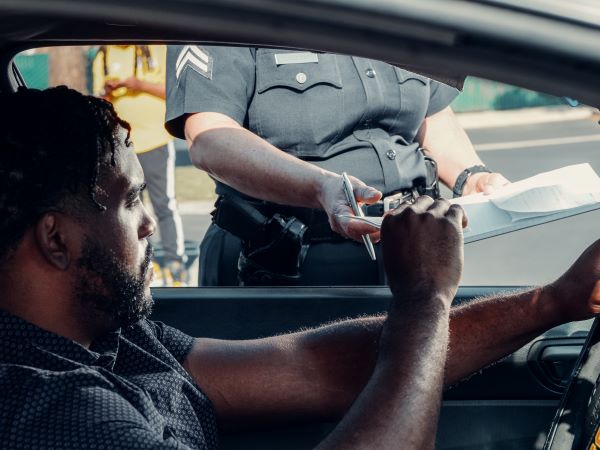The state laws in North Carolina explicitly condone distracted driving or driving under the influence, as it can be a risk to public safety. The North Carolina Department of Public Safety issues guidelines on driving under the influence of alcohol or driving while intoxicated (DWI). Driving while intoxicated is a crime in North Carolina. To help you ensure you don’t violate this traffic law and to avoid committing your DWI North Carolina first offense, learn more about the driving laws in the state.
In North Carolina, DWI, or driving while intoxicated, is when the driver is under the influence of an alcoholic substance. It involves drinking or ingesting a substance that affects their ability to drive a car or any other vehicle. It assumes that anyone who is drunk or has alcohol in their system lacks complete physical control of the vehicle, which makes it a danger to other motorists. According to this news report, drunk driving accidents in North Carolina are rising. Specifically, traffic fatalities involving alcohol rose by 22% in 2021.
Given the seriousness of the danger involving DWI cases, it’s no surprise why North Carolina is stern in its implementation of drunk drinking laws.

Is Drunk Driving a Felony in NC?
It is illegal to drive in North Carolina if you have an alcohol concentration of 0.08 or higher in your system. For commercial vehicle drivers, the threshold for alcohol concentration is lower at 0.04. The DWI law in North Carolina offers stiffer penalties for repeat offenders.
Habitual DWI offenders or any drivers with four DWI convictions in the last ten years could qualify your case as a felony in North Carolina law. When your offense falls within this category, you could spend at least one year in jail, and there is no way to reverse this sentence.
There are five levels of misdemeanor charges for DWI cases in North Carolina. Level I is the most serious offense, and Level V is the least serious. The more serious the offense is, the higher the possibility that you could spend time in jail for this traffic violation.
Here is an overview of the various offense levels defined by the drunk driving laws in North Carolina.
Level V
The level V offense entails a fine of $200 and up to 24 hours in jail (up to a maximum of 60 days). Aside from possible jail time, you must fulfill 24 hours of community service and you will be unable to drive for 30 days.
Level IV
The fine for this level of offense goes up to $500 and a minimum of 48-hour jail time. Depending on the circumstances of your case, your jail time could extend up to 120 days. You will also perform 48 hours of community service, and your driver’s license will be suspended for 60 days.
Level III
For a Level III offense, you must pay a fine of $1,000 and spend time in jail for 72 hours or up to six months. In addition, you must perform 72 hours of community service and cannot operate a motor vehicle for 90 days.
Level II
The Level II offense entails a fine of $2,000 with a minimum jail sentence of seven days and a maximum of one year in jail.
Level I
The most serious offense for DWI in North Carolina is punishable with a fine of $4,000 and at least 30 days in jail (with a maximum of a two-year jail sentence).
Impaired drivers who law enforcers stop must undergo a substance abuse assessment. Drivers charged with repeat or habitual DWI offenses must complete the recommended treatment to restore their revoked license, but only after the revocation period.

What is the Penalty for Drunk Driving in North Carolina?
As mentioned, there are various penalties for drunk driving in North Carolina, depending on the offence level. Level I offenders face the most serious fines and criminal cases, but it varies depending on the severity of the crime.
North Carolina law takes a serious stance against drunk driving, so they impose serious charges and fines to avoid violations. Even when it is your first DWI offense in North Carolina, you could still face stiff penalties (up to level I offense).
In addition to your criminal conviction, you could also face additional charges as per the North Carolina Division of Motor Vehicles (DMV). Some penalties for DWI could take effect before your case goes to trial.
The penalties include but are not limited to the following:
- Civil suspension of your driver’s license for 30 days (you could be designated a limited driving privilege for ten days).
- Automatic one-year suspension for anyone who refuses to take the breath test.
DWI North Carolina First Offense
Facing jail time is rare among first-time offenders of DWI laws in North Carolina. However, it could be possible if there are aggravating factors surrounding your case or the severity of the drunk driving incident (such as the injury or death of another motorist or pedestrian).
The court will assess the severity of your case and the corresponding penalties based on the circumstances of your case, not whether or not it is your first offense (although habitual offenders face stiffer penalties and charges).
Can You Reduce a DWI Charge?
Reducing your DWI charge in North Carolina is challenging, given the strict implementation of drunk driving laws in NC. The best way to reduce a charge or have it dismissed is to argue improper handling of your DWI case by the officers in charge.
For example, they did not have probable cause to stop your vehicle or arrest you with insufficient evidence. You can seek the help of a DWI attorney in North Carolina to help with your case if you hope to get it dismissed. An attorney can build a solid case showing how the traffic officers violated your constitutional rights.
Make sure to discuss your case openly with your attorney and be honest with them. It will help to get your DWI charge dismissed, or you could face jail time and pay stiff fines.
When you are involved in a DWI case, you must contact your attorney immediately. They can give proper legal advice on the subsequent steps to take to minimize your charges and reduce the likelihood of facing jail time.


